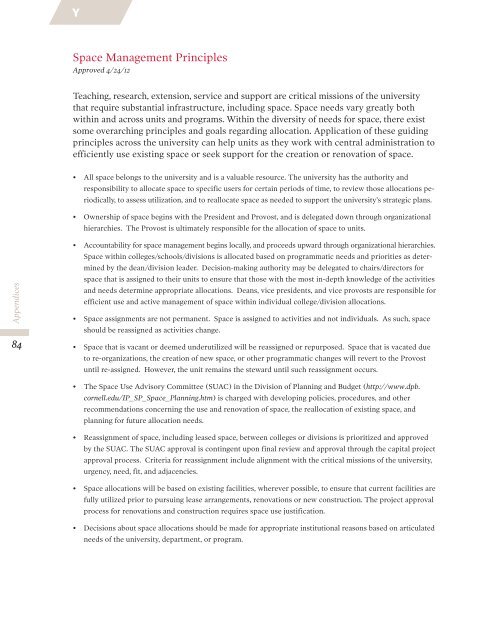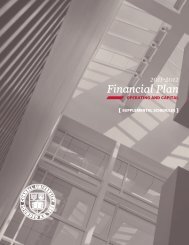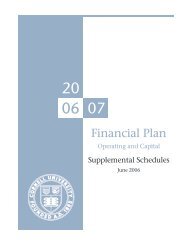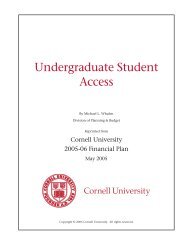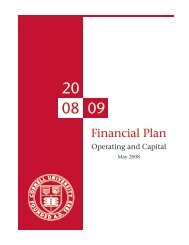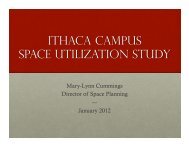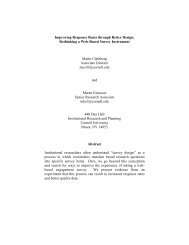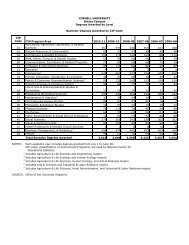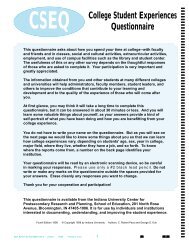2013-14 Operating & Capital Budget Plan - Cornell University ...
2013-14 Operating & Capital Budget Plan - Cornell University ...
2013-14 Operating & Capital Budget Plan - Cornell University ...
Create successful ePaper yourself
Turn your PDF publications into a flip-book with our unique Google optimized e-Paper software.
YSpace Management PrinciplesApproved 4/24/12Teaching, research, extension, service and support are critical missions of the universitythat require substantial infrastructure, including space. Space needs vary greatly bothwithin and across units and programs. Within the diversity of needs for space, there existsome overarching principles and goals regarding allocation. Application of these guidingprinciples across the university can help units as they work with central administration toefficiently use existing space or seek support for the creation or renovation of space.• All space belongs to the university and is a valuable resource. The university has the authority andresponsibility to allocate space to specific users for certain periods of time, to review those allocations periodically,to assess utilization, and to reallocate space as needed to support the university’s strategic plans.• Ownership of space begins with the President and Provost, and is delegated down through organizationalhierarchies. The Provost is ultimately responsible for the allocation of space to units.Appendices84• Accountability for space management begins locally, and proceeds upward through organizational hierarchies.Space within colleges/schools/divisions is allocated based on programmatic needs and priorities as determinedby the dean/division leader. Decision-making authority may be delegated to chairs/directors forspace that is assigned to their units to ensure that those with the most in-depth knowledge of the activitiesand needs determine appropriate allocations. Deans, vice presidents, and vice provosts are responsible forefficient use and active management of space within individual college/division allocations.• Space assignments are not permanent. Space is assigned to activities and not individuals. As such, spaceshould be reassigned as activities change.• Space that is vacant or deemed underutilized will be reassigned or repurposed. Space that is vacated dueto re-organizations, the creation of new space, or other programmatic changes will revert to the Provostuntil re-assigned. However, the unit remains the steward until such reassignment occurs.• The Space Use Advisory Committee (SUAC) in the Division of <strong>Plan</strong>ning and <strong>Budget</strong> (http://www.dpb.cornell.edu/IP_SP_Space_<strong>Plan</strong>ning.htm) is charged with developing policies, procedures, and otherrecommendations concerning the use and renovation of space, the reallocation of existing space, andplanning for future allocation needs.• Reassignment of space, including leased space, between colleges or divisions is prioritized and approvedby the SUAC. The SUAC approval is contingent upon final review and approval through the capital projectapproval process. Criteria for reassignment include alignment with the critical missions of the university,urgency, need, fit, and adjacencies.• Space allocations will be based on existing facilities, wherever possible, to ensure that current facilities arefully utilized prior to pursuing lease arrangements, renovations or new construction. The project approvalprocess for renovations and construction requires space use justification.• Decisions about space allocations should be made for appropriate institutional reasons based on articulatedneeds of the university, department, or program.


